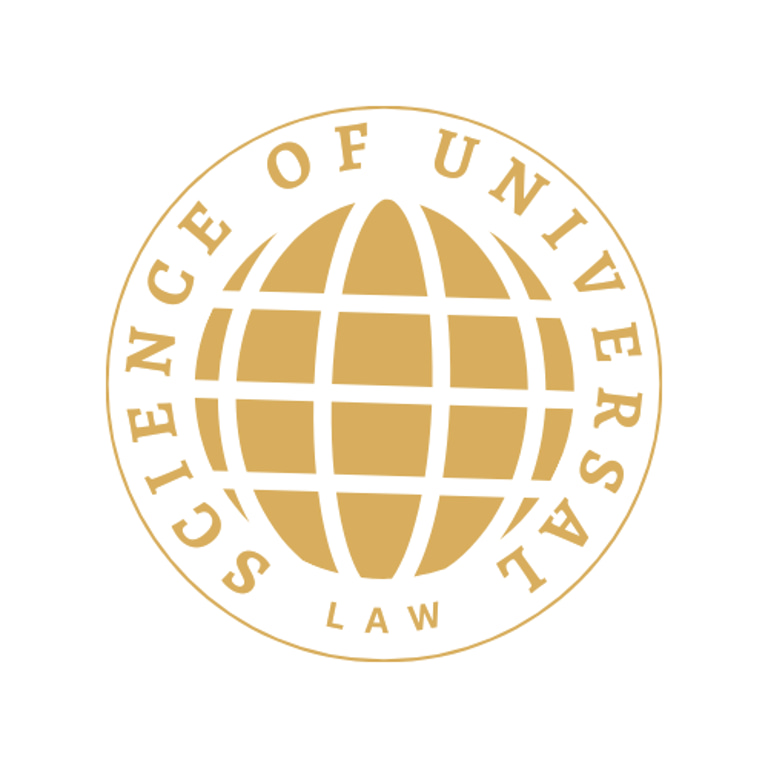Ecclesiastical Constitution
of the
Science of Universal Law
Article I — Name and Purpose
Section 1.1 — Name
This ecclesiastical body shall be known as the Science of Universal Law, hereinafter referred to as “the Ministry,” “the Church,” or “the Order.”
Section 1.2 — Purpose
The purpose of the Science of Universal Law is to teach, preserve, and practice the spiritual understanding of Divine Order and Universal Law. We are committed to the elevation of human consciousness through spiritual education, experiential practice, moral discipline, and sacred service.
The Church shall operate exclusively for religious, spiritual, and charitable purposes, including but not limited to:
Teaching and interpreting the immutable Laws of the Universe
Providing spiritual guidance and counseling
Hosting sacred gatherings, ceremonies, and fellowships
Ordaining ministers and spiritual guides
Establishing temples, schools, and sanctuaries for worship, study, and retreat
Promoting inner transformation and harmony between humanity and divine intelligence
Article II — Doctrinal Beliefs
Section 2.1 — Core Doctrine
The Science of Universal Law holds that:
All creation operates in harmony with immutable spiritual principles known as Universal Laws.
Each human being is an eternal soul with divine origin and capacity.
Conscious alignment with these laws results in healing, prosperity, peace, and enlightenment.
There is no separation between spirit and science—what is measurable in the material world reflects deeper energetic laws.
All sincere spiritual paths, when aligned with Truth and Love, are valid expressions of the Divine.
Section 2.2 — Sacred Texts and Teachings
The Ministry shall preserve, develop, and disseminate sacred writings, lectures, meditations, and revelations delivered by divinely inspired individuals, including but not limited to the founder(s) and ordained teachers of this Church.
Article III — Governance and Structure
Section 3.1 — Ecclesiastical Authority
The supreme governing body of the Science of Universal Law is the Council of Light, consisting of the founding teacher and appointed elders or ministers. The Council shall provide spiritual and administrative oversight for all global operations.
Section 3.2 — Founder and Head Minister
The founding minister, currently Greg L. Thomas, shall hold the role of spiritual visionary, lead teacher, and chief administrator, until death, resignation, or incapacitation.
Section 3.3 — Ordained Ministers and Teachers
The Church shall ordain ministers who demonstrate spiritual maturity, understanding of Universal Law, and a commitment to sacred service. Ministers may:
Conduct teachings, ceremonies, and counseling
Establish local temples or study groups
Receive compensation, housing allowances, and other benefits in accordance with IRS tax guidelines
Section 3.4 — Advisory Roles
Other roles such as stewards, scribes, ambassadors, and healing guides may be created as needed to assist in governance and service.
Article IV — Membership and Fellowship
Section 4.1 — Membership Criteria
Membership in the Science of Universal Law is open to any individual who seeks to live in accordance with Universal Laws and commits to personal transformation through sacred study and spiritual practice.
Section 4.2 — Rights of Members
Members are entitled to:
Participate in teachings, rituals, and fellowship gatherings
Access ministry resources and community platforms
Apply for ordination or ministry training programs
Contribute offerings and receive donor acknowledgments
Article V — Worship and Religious Practice
Section 5.1 — Worship Activities
The Church shall conduct regular spiritual practices, including but not limited to:
Weekly teachings or sacred lectures (in person or online)
Ceremonies aligned with cosmic events and equinoxes
Guided meditations, affirmations, and energy alignment
Rituals of initiation, ordination, healing, and passage
Section 5.2 — Sacred Locations
The Church shall operate sanctuaries, learning centers, healing spaces, or mobile temples as places of worship, study, and spiritual renewal.
Article VI — Financial Stewardship
Section 6.1 — Donations and Offerings
The Church may receive tithes, offerings, donations, bequests, and other contributions to support its religious mission. All funds shall be used solely for advancing the Church's spiritual, charitable, and educational purposes.
Section 6.2 — Tax Exempt Status
The Church is recognized as a tax-exempt religious organization under Internal Revenue Code §508(c)(1)(A). As a matter of law and religious freedom, it is not required to file IRS Form 1023 or 990.
Section 6.3 — Compensation
Ministers and staff may receive fair and reasonable compensation, housing allowances, travel stipends, and reimbursement for ministry-related expenses in accordance with IRS guidelines.
Section 6.4 — Prohibition on Inurement
No part of the Church’s net earnings shall insure to the benefit of any private individual. All income shall be used to further the spiritual and religious mission.
Article VII — Ordination and Licensing
Section 7.1 — Path to Ordination
Ordination shall be granted to individuals who complete the prescribed studies, demonstrate spiritual competence, and are approved by the Council of Light.
Section 7.2 — Ministerial Authority
Ordained ministers may conduct:
Ceremonies (weddings, naming, transition rites)
Teachings, retreats, and local temple gatherings
Counseling and spiritual healing practices
Section 7.3 — Licensure and Oversight
Ordained ministers operating under the Church’s name shall remain in good standing and abide by the code of ethics, teachings, and doctrine of the Church.
Article VIII — Dissolution Clause
In the event that the Science of Universal Law is dissolved, all remaining assets shall be distributed exclusively to one or more religious, charitable, or educational organizations that qualify under section 501(c)(3) or are recognized churches under §508(c)(1)(A) of the Internal Revenue Code.
Article IX — Amendment Process
This Constitution may be amended by the unanimous consent of the Council of Light, provided such amendments do not alter the fundamental religious purpose of the Church.
S.O.U.L
Elevating consciousness through divine understanding.
Community
info@scienceofuniversallaw.com
© 2025. All rights reserved. Science of Universal Law
